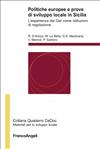Development of social services in contemporary welfare systems took place in parallel with the evolution of partnerships between State and Third Sector, a collaboration that allowed the growth of social policies. Beyond the different national organisational types, the Third Sector concerns the institutions that are based on mechanisms of reciprocal solidarity, taking shape inside the structure of the non-profit sector, yet extending beyond and into the more general social context to the point of being considered one of the main agencies that creates social capital in the territory. The article shows how three characteristics common to the Third Sector organisms, referable to manners of operation, can favour the increase of individual relationships and all of the local community. The three characteristics identified are: democratic participation in the decisional processes of everyone involved in the organisation, personalisation and collaboration between beneficiary and the service provider, and the likelihood of success of the commitment that those involved, prevalently as volunteers, dedicate to the organisation. These three elements are considered the basis through which the individuals (users and citizens) can verify how to create cooperative relationships that succeed, based on trust in reciprocal respect for commitments taken and not on external incentives, which means create social capital.




